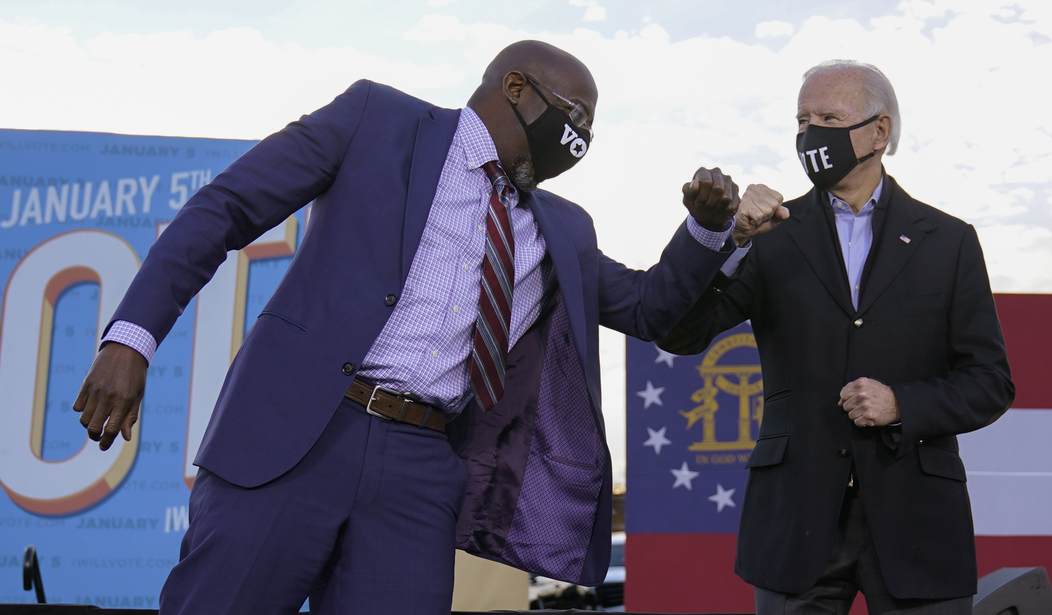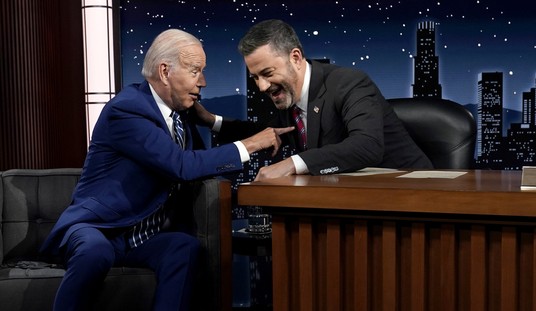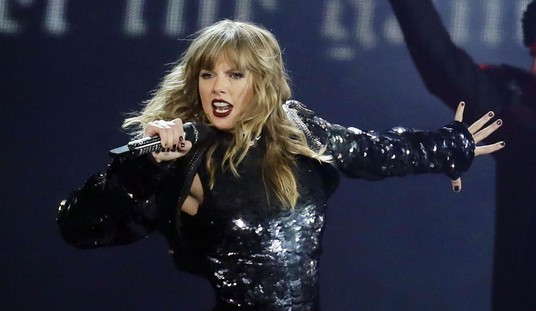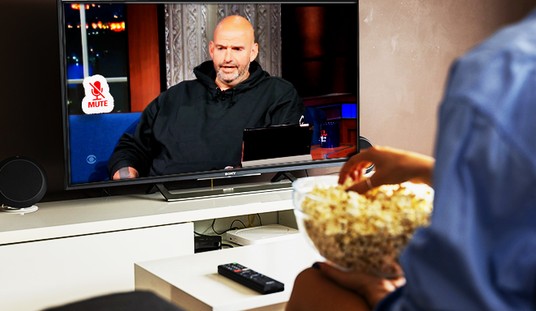Consider this concern a day late and about $1.9 trillion dollars short. For the past year, the same Senate Democrats cited in CNN’s report earlier this morning voted in lockstep for Joe Biden’s inflationary American Rescue Plan. The same Senate Democrats have spent the intervening fifteen months adamantly carrying Biden’s water on his blame-shifting for inflation, too.
Now, however, political reality has belatedly dawned in places like Arizona, Georgia, and New Hampshire, CNN reports:
The cost of consumer goods has jumped to its highest point in four decades. But in some of the most important battleground races in the country, the situation is even more dire for Democrats, who saw their constituents hit with price increases that were higher than the national average.
In Phoenix, Arizona — a state where Democratic Sen. Mark Kelly is facing one of the toughest reelection races this fall — the cost of goods rose a whopping 12.3% from June 2021 to June 2022, according to the Labor Department. That’s over three points higher than the national average, which hit 9.1%.
Meanwhile, in the Atlanta metro area — which is represented by vulnerable Democratic Sen. Raphael Warnock — costs climbed 11.5% over the same 12-month period.
The latest inflation numbers, particularly in key swing states that could determine control of the Senate, brought into focus the deepening political problems for President Joe Biden and his party, and explain why vulnerable Democrats have publicly rung the alarm about the issue. Democrats desperate to retain control of Congress are now pleading with the administration and their party leadership to help them more forcefully combat rising prices — and, in the process, hang on to their seats.
How odd that these vulnerable Senate Democrats have found their voice now. Inflation has been running away for well over a year; it hasn’t been below 7% year-on-year in the consumer price index since late last year. Again, let’s remind everyone just how long it’s taken for these incumbents to start talking about how “families are finding it hard to afford a lot of things,” as Mark Kelly has apparently just learned:

So why now? Isn’t this “transitory,” or “real growth,” or “Putin’s price hike,” or “Republican obstruction” any more? Or most recently, “out of date“? None of that messaging is working, clearly, and neither is the White House’s stay-the-course strategy on economic and energy policies. And these front-line Democrats know it — even if they’re admitting it far too late.
Unfortunately, these incumbents are every bit as empty as Biden on what to do about it. Kelly tells CNN that he wants Biden to continue emptying the Strategic Petroleum Reserve, which has perhaps taken the edge off the price hikes but is only a short-term patch. Warnock wants a federal gas-tax holiday as well as a cap on insulin prices, the former of which is a nonsense gimmick that will spike demand in the short run while saving individuals very little cash — but hammer Biden’s funding for his infrastructure programs.
Maggie Hassan has a more biting criticism of the White House:
Some Democrats are starting to point the finger at one another. New Hampshire Sen. Maggie Hassan, a vulnerable Democrat, criticized the Biden administration’s handling of inflation, telling CNN: “I have said for a while that I thought he and the administration have been too slow to react to it.”
Inflation may not be the worst of it come Election Day, however. The Federal Reserve will launch big hikes in its prime interest rates, hoping to seriously cool off demand. That will have a major and direct impact on consumer spending on major-ticket items, and in fact may already have. Home builders’ confidence has dropped precipitously this month, even for new builds that tend to get impacted last:
Confidence among builders in the nation’s single-family housing market fell in July to the lowest level since the start of the pandemic.
The National Association of Home Builders/Wells Fargo Housing Market Index, a survey designed to gauge market conditions, found builder sentiment dropped 12 points to 55. That marked the largest single-month drop in the survey’s 37-year history with the exception of April 2020, when the reading plummeted 42 points to 30 after the start of the Covid-19 pandemic.
Any rating above 50 on the index is still considered positive, but sentiment has now fallen 24 points since March, when mortgage rates began moving higher. The average rate on the 30-year fixed mortgage has nearly doubled since January and is now hovering just below 6%.
Sentiment stood at 80 in July of last year after hitting a record high of 90 in November 2020, when the pandemic sparked a rash of homebuying among people looking for more space in less urban areas. Now, concerns about inflation and recession are among the factors taking a toll on builder sentiment.
With the Biden administration doing little to even admit that its policies have created this inflationary wave, let alone do anything about it, the Fed’s left holding the bag to deal with it through monetary policy alone. That is a sledgehammer approach rather than surgical, and the longer inflation keeps going, the bigger the chance of a major recession as its cure becomes. Hardly anyone thinks a soft landing for inflation is possible now; the only questions are when the recession will hit, how deep it will go, and how long it will last.
If it hits before November, there will be a lot more vulnerable Democrats all over the ballot. But even if the recession waits until next year, we are very likely to enter a stagflation period — if we haven’t already entered it. Globally and in the US, momentum on consumer activity and other parts of the economy appears to be faltering, wage erosion is increasing, and capital investors will likely shelter in the coming Fed storm rather than put their money to work.
The political consequences of inflation/stagflation will be unavoidable for Democrats in three months, simply because they walked the US into it. The political consequences from recession will be even worse. That’s why these vulnerable Senate Democrats have stopped carrying Biden’s water and are getting a lot more vocal about Biden’s need to do something — fast.








Join the conversation as a VIP Member